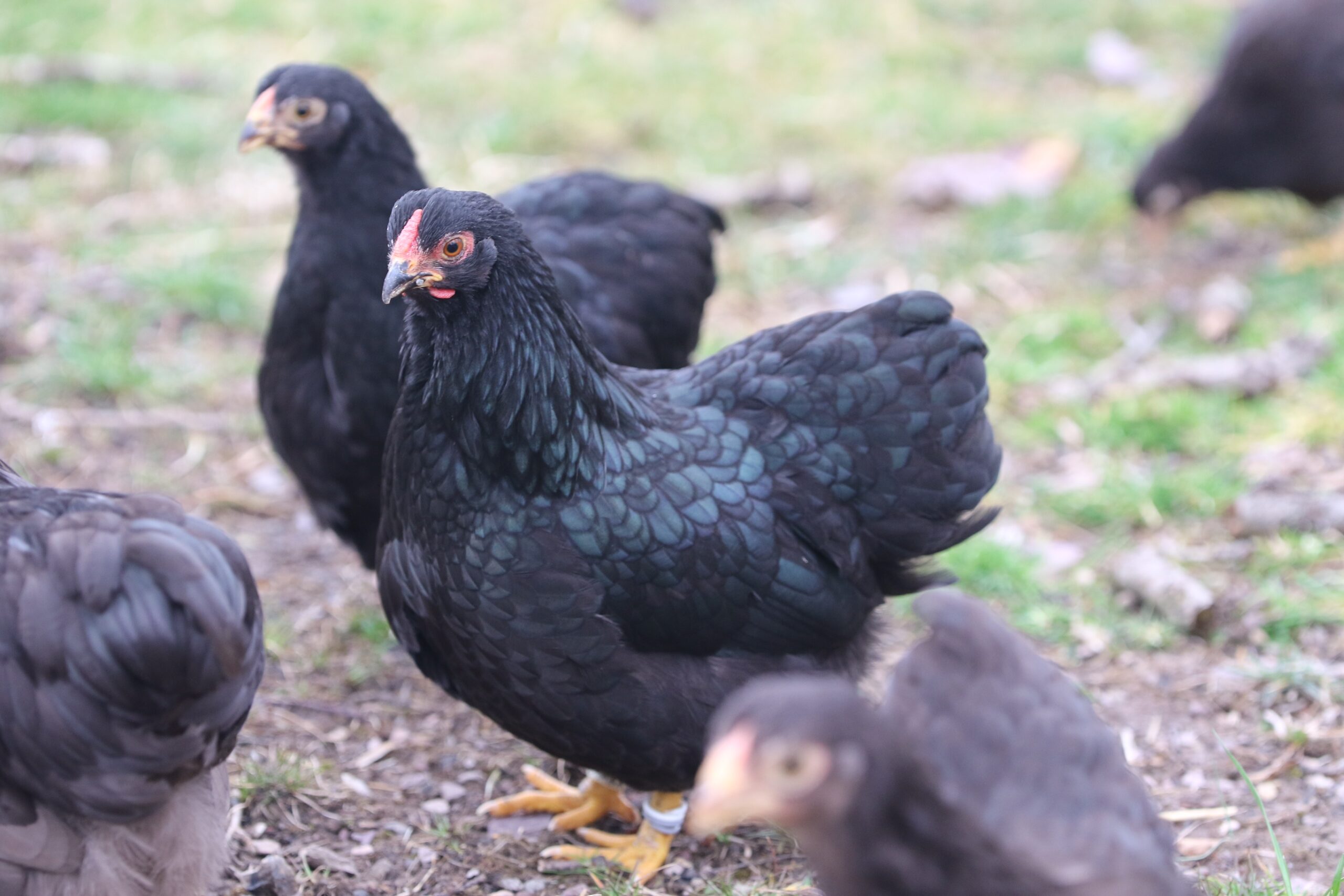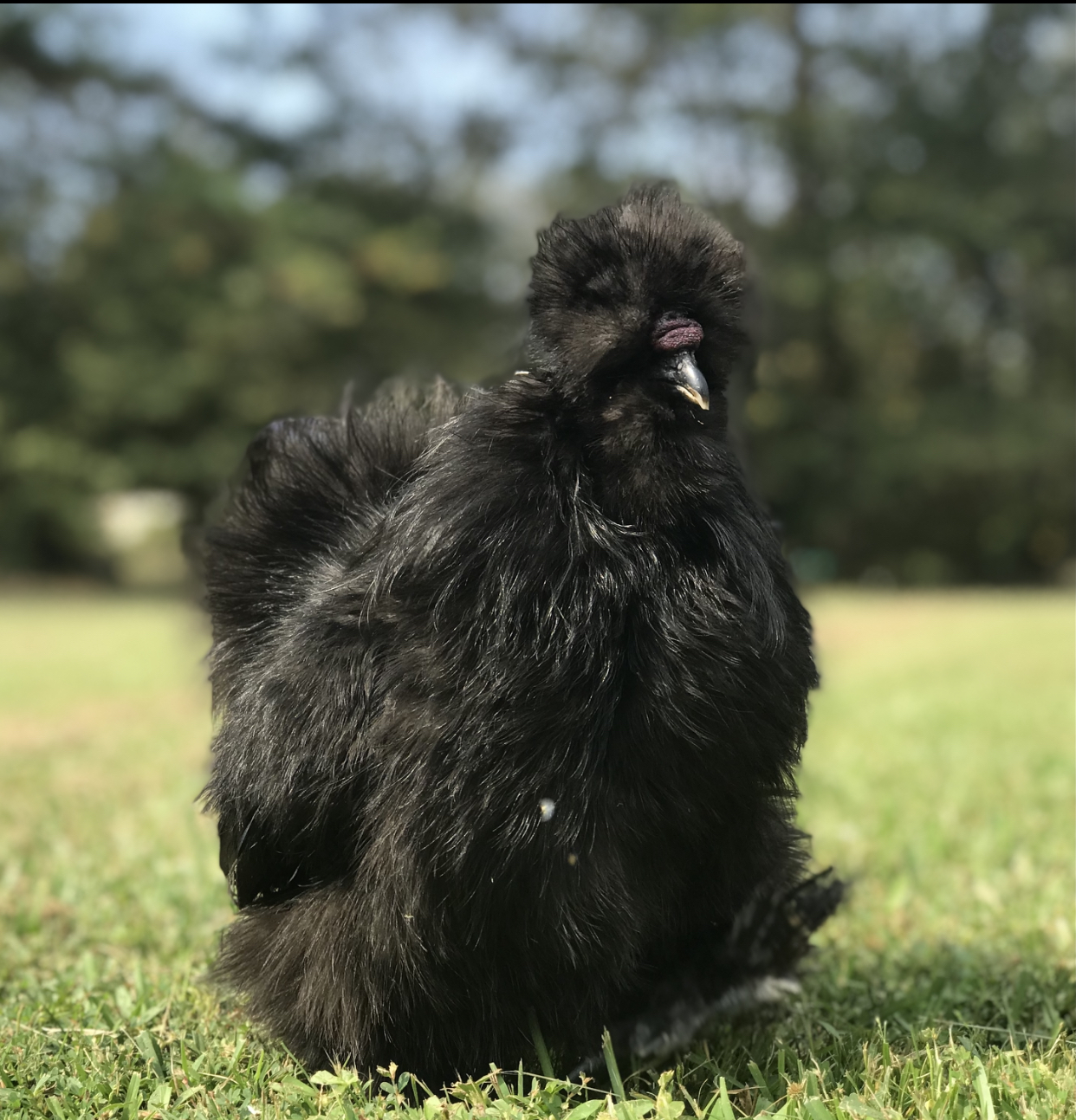My birds are sick, what do I do?
This article on what to do when you notice your birds are sick is an excerpt from the Small Flock Poultry Health Manual published by the Province of B.C. Ministry of Agriculture. The full manual can be accessed by clicking here.
You should always be monitoring your birds for any signs of sickness. If problems are noticed early, there is a better chance for successful treatment and lower bird mortality or production loss. This is described in further detail in the Biosecurity Principle 2 factsheet. Every animal owner should establish a relationship with a veterinarian for consultation and diagnostic services, giving you someone to reach out to when your birds are sick. Under the Veterinary Act, a legitimate veterinarian-client-patient relationship (VCPR) is required for your veterinarian to legally dispense drugs and other medications. This is very important when you encounter a disease problem that would necessitate treatment or any further action that may involve government regulations.
Veterinarians are educated and trained to diagnose and treat animal diseases. Many practicing veterinarians do not specialize in poultry medicine/diagnostics. Nevertheless, they should be able to quickly diagnose most common avian problems and send appropriate tissue samples to the Animal Health Centre at the Abbotsford Agriculture Centre for further testing if necessary. A veterinarian at the Animal Health Centre will report back to your veterinarian with the results. Your veterinarian will then provide you with an interpretation of these laboratory results as well as make recommendations on medication, vaccination, and possible changes in bird management to treat and prevent the further spread of disease.
Submitting samples to your Veterinarian or Animal Health Centre
When submitting samples, select specimens and/or freshly dead carcasses that are representative of the problem. Whenever possible, make sure that they have not been treated with antibiotics. Call ahead so the veterinarian or laboratory knows that you will be submitting samples and to determine what information is required so that your submission can be analyzed as quickly as possible.
Obtaining useful/accurate results from your veterinarian or the Animal Health Centre (AHC) requires good samples and a complete history. Submission forms for the AHC require standard information like the species, breed, age, sex, weight of the bird(s), flock statistics and relevant bird/flock history. A summary of management practices, recent medications, vaccinations and clinical symptoms are all helpful.

Below is a more detailed list of information that will help in the diagnosis and resolution of your problem. Good background information will increase the chances of a more accurate and rapid diagnosis. This is information that should be readily available as part of your regular record keeping.
History of the Problem
Where possible list dates of onset and/or duration.
- General abnormalities – sudden death, morbidity (the number of clinically sick birds), droopiness, depression, lack of appetite, ruffled feathers, abnormal color of wattles and combs, dehydration, loss of feathers, etc.
- Respiratory system – sound of fluid mucus in the airways (rales), gasping, coughing, swelling of areas around eyes, inflamed sinuses, watery eyes, nasal exudates, etc.
- Digestive system – loose droppings, diarrhea, abnormal color of feces, big belly, etc.
- Nervous system – head shaking, neck twisting, abnormal extension of legs, circling, etc.
- Skin and musculoskeletal system – scratches, abnormal discoloration, lumps, lameness, scaly legs, twisted legs, abnormal back curvature, etc.
- Reproductive system – drop in egg production, poor egg quality: thin shell, abnormal shape, color, and size, etc.
Flock Description and History
- Size of the flock/Number of birds at risk.
- Number (or %) sick.
- Number (or %) dead (distinguish natural deaths vs. culls).
- New bird arrivals? Where did they come from; their medication/vaccination history?
- Are there other species on farm? How much contact is there with these other species and the birds?
- Have the birds been to a show or race recently?
- Have they been moved from one barn/loft to another recently?
- Have they had normal molting and brooding behaviour?
Management Practices: Feed and Water
- What type of feed – any recent changes in feed or feed supplier?
- Are there any feed additives?
- What is the source of water (city, well, surface, cistern, etc.) and any recent changes in the source?
- Is the drinking water treated or has the treatment changed? (i.e. filtered, chlorinated, etc.).
- Any changes in the watering system (i.e. from troughs to nipple drinkers)?
- Any water additives used (i.e. apple cider vinegar, vitamin packs, antibiotics, etc)?
Management Practices – Housing
- Access to outside.
- Access to open water.
- Access to wildlife (mainly wild bird populations).
- Cage or housing system.
- Litter/bedding materials, (type of bedding, changes, source).
- Other: ventilation problems, weather or temperature changes, abnormal noise, electrical surges, blackout, recent use of insecticides and/or herbicides, etc.

Caring for animals is difficult and every type of animal operation, whether this is a large animal farm, a commercial poultry operation, or a hobby farm should have a health program and access to a licensed veterinarian for consultation and diagnostic services.
Take Home Message
- Develop a relationship with your local veterinarian before health problems arise.
- Be proactive and develop a health care program for your birds.
- When birds are sick be sure to carefully select representative samples for submission.
- Provide a complete and detailed history of the problem.
- Seek assistance as soon as a problem is identified
By:
Dr. Bruce Hunter, Ashley Whiteman, Dr. Babak Sanei, Al Dam and Dr. Teresa Cereno
University of Guelph and Ontario Ministry of Agriculture, Food, and Rural Affairs
